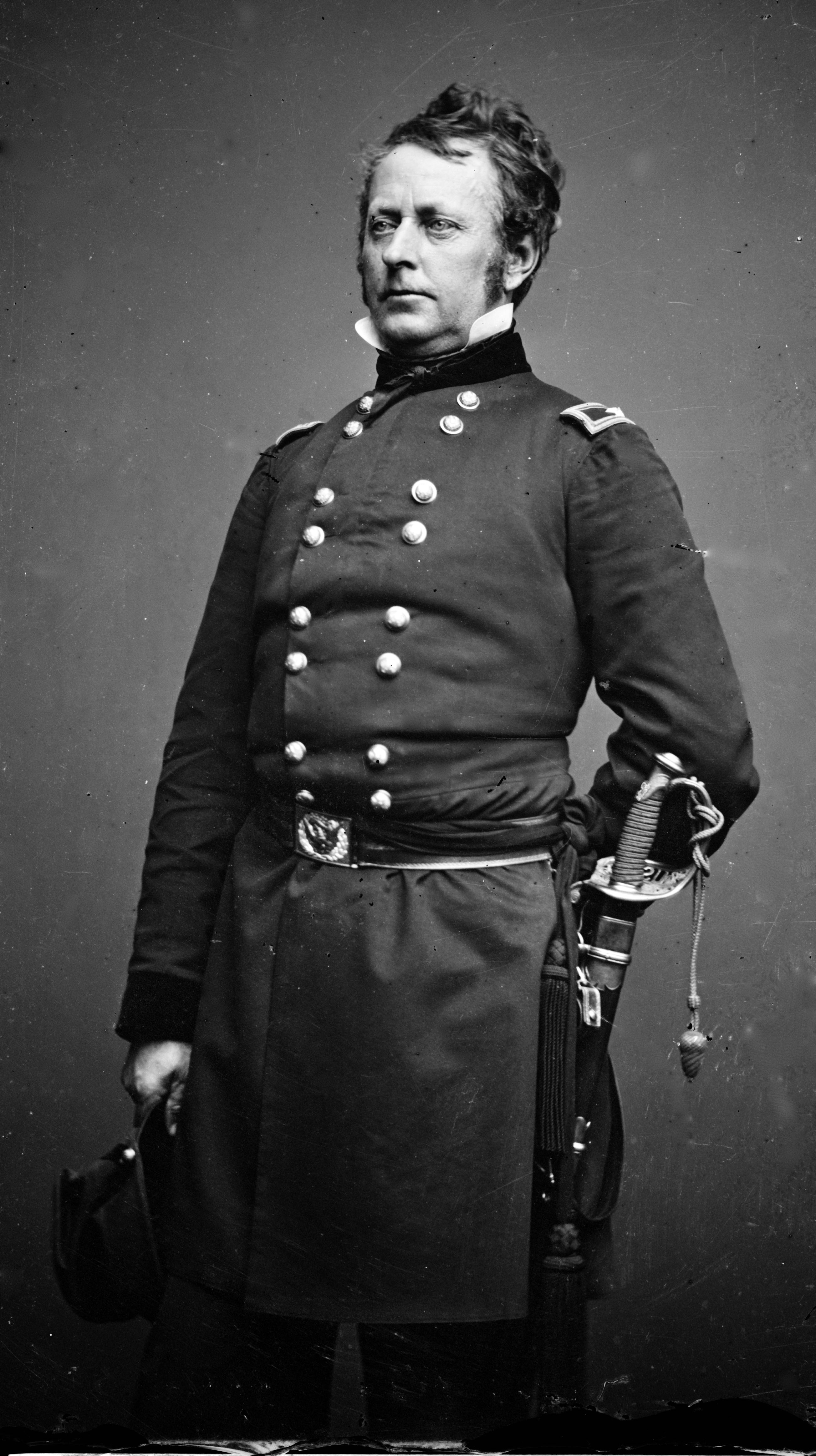 |
| Maj Gen Joseph Hooker (1814-79) |
[A]lmost by default, the command [of the Union Army of the Potomac in the US Civil War] went to
Fighting Joe Hooker. Another West Pointer, Hooker had done well in the
Mexican War, then resigned in the fifties, and went to California, where he failed as a farmer. He returned to the army at the beginning of the war, and earned an odd reputation in the Peninsula. A newspaper correspondent filed a story under the headline "Fighting - Joe Hooker"; this was garbled over the telegraph wires and came out "Fighting Joe Hooker", and he was stuck with it. A loud, brash, intemperate man, Hooker had many friends and as many enemies. He was touted to replace McClellan after
Antietam, but Lincoln chose Burnside instead. After
Fredericksburg, Burnside wanted to fire Hooker, but it was his turn now. Secretary of the Treasury Salmon P. Chase liked him, and so did the Radical Republicans, though it was whispered about Washington that his chief claims were that he was not a political rival. When Lincoln appointed him, he did so with such misgivings that he wrote him a very stern cautionary letter, counselling good behaviour, temperate speech, and above all the winning of victories.
To almost everyone's surprise, Hooker turned out to be a good administrator. The army had grown slack and sullen after Fredericksburg; soldiers always know when their officers are squabbling, for armies have few secrets. Morale was down, desertion was up, drill and dress were sloppy, field punishments were frequent and necessary, and it was obvious that the
Army of the Potomac had lost tone. Hooker took rapid and effective steps to restore order, authority and confidence. He improved administration, rations and delivery of equipment. Where McClellan had thousands of men simply wandering off on extended leaves, Hooker instituted a rational furlough system. He made newspaper correspondents sign their dispatches, to stop irresponsible reporting. He cleaned up the army's rear areas, making one contribution to the vocabulary: "hooker" became a synonym for a prostitute because of his tolerance of them in the army's trains.
- James L. Stokesbury, A Short History of the Civil War, New York, 1995, p.152-3.

1 comment:
heh. another version is that they're called hookers because of the large number surrounding him and his staff.
Post a Comment